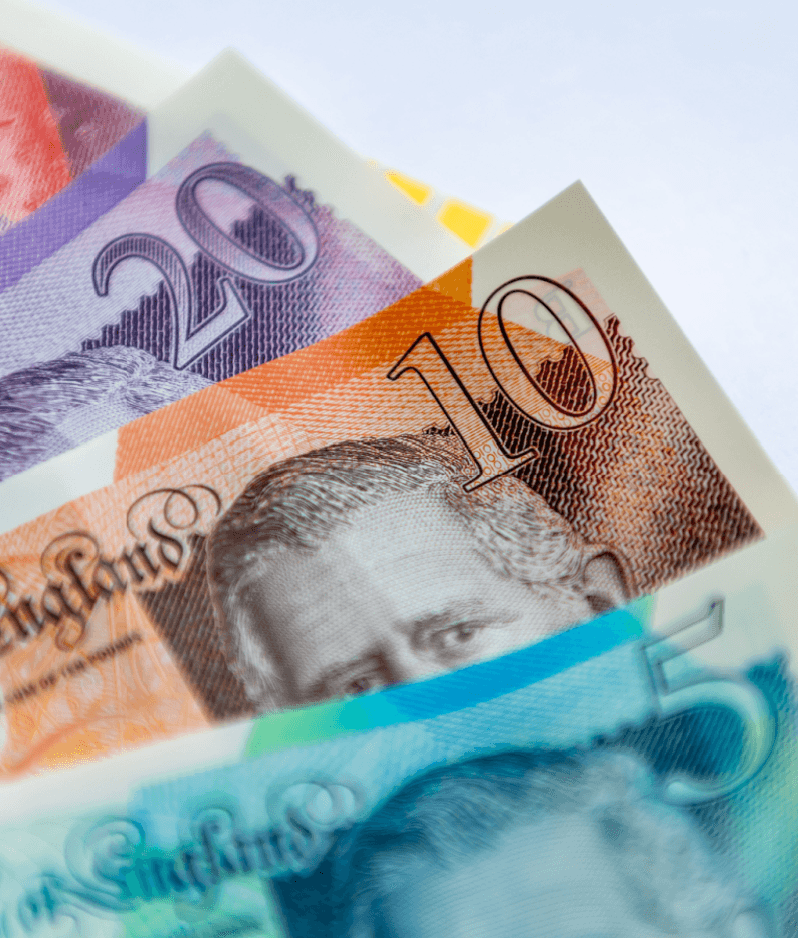Do I have a claim? Five common shareholder disputes and how to resolve them

Here are five typical shareholder disputes examples to show you how things are typically resolved and understand when you might have a claim.
Read more
Talk to us: 0151 600 3493 | hello@shareholderrights.co.uk
Our team can ensure that your share valuations are as accurate as possible and help to choose the right valuer for your needs.

Placing an accurate value on a shareholding in a private limited company is tricky. This may make it more difficult for you to sell and get a good return on your investment.
Accurately valuing shares requires specialist accountancy input — and before you embark on any valuation process, it’s essential to choose the right valuer. You can’t assume that any old accountant is qualified or experienced enough to act as your valuer.
It's possible for different accountants to arrive at different valuations, even in exactly the same factual circumstances. The process of valuing shares can be compared to trying to value land or property in that it can be somewhat subjective — what one person sees as valuable, another may value differently.
Obtaining an accurate valuation of a shareholding involves a number of factors that aren’t always immediately apparent, including:
A considerable number of court judgments have considered — often in great detail — the correct way of valuing company shareholdings. Most commonly, these judgments are concerned with arriving at what’s called the 'fair value' (more on this below).
We can help you to decide which valuer to appoint.

Share valuations require expertise and independence. Choosing a valuer can have a significant impact on the valuation of your shares — so it’s key that you make the right decision to protect your intestates.
The best way to maintain accuracy during the share valuation process is to choose a suitably experienced and qualified accountant. Within the accountancy field, there are various subsets of specialist accountant valuers. To arrive at an accurate valuation, it’s essential to choose the right valuer — on with experience of the industry your company operates in and dealing with companies of that size and type. Other practical issues you need to take into consideration include the cost of the valuation.
Whenever the question of identifying a valuer arises, it’s normal for at least one party to suggest that the company auditors or accountants should carry out that role. The advantage of this route is that they’ll already be familiar with the company.
However, it’s often the case that company auditors or accountants can’t be truly independent. They may (whether consciously or subconsciously) have a natural allegiance to whichever individuals will remain in control after the valuation.
When there’s no agreement over the identity of the valuer, the most appropriate process is usually to jointly ask the current President of the Institute of Chartered Accountants in England and Wales (ICAEW) to independently identify a valuer and for the parties to be bound by this decision.
If you’re looking for a suitable valuer — experienced in valuing companies and shareholdings — we’re happy to make a suggestion to you.

Our team can help you understand the key criteria upon which your shares will be valued. There are essentially three main aspects to valuing a company — assets, earnings and cash flow.
It's usually the valuer who decides which of these options is the most appropriate for valuations. Certain companies (such as property investment companies) favour a net asset-based valuation, while others (such as an online retailer with little or no assets) will favour an earning-based valuation.
An asset-based valuation focuses on the value of the assets owned by the company (such as property, plant and machinery).
Whatever the nature of the assets, it may be necessary to choose a specialist valuer (e.g. a surveyor or estate agent for valuing real estate) to identify their value.
The most common form of valuation is based on earnings (or earnings capacity). This concentrates on the income and earnings generated by your company both historically and its potential in the future.
Here, the valuer determines the likely 'maintainable earnings' of a business by making adjustments to historic profits and directors' remuneration to strip out costs that a buyer could alter. 'One off' costs (exceptional items) are also usually stripped out. The valuer then applies a 'multiplier' (often called the Price Earnings Multiple or Price Earnings Ratio) to these maintainable earnings, which reflects an estimate of how likely the business is to continue generating these earnings. The resulting valuation may be cross-checked or adjusted against the value of the company’s assets (such as land) or other value not reflected in the earnings-based valuation (such as cash in the bank).
In certain scenarios, valuations are done by discounting cash flows going forward. This values a company on the basis of the cash or revenue that its business generates.
Alternatively, valuers may estimate a future maintainable dividend income before discounting that figure to arrive at a present-day value. This method is more difficult to justify as it involves more estimation than other methods.
We're dedicated to your next step and have the expertise to advise you on valuation matters.

Compensating adjustments are often used by the courts to ensure that your shares are assigned a fair value. It’s vital to know when these adjustments are likely to be applied.
You should be aware that in shareholder disputes the process of valuing a company or shareholding can be complicated by the misconduct or wrongdoings of others.
A common scenario is when majority shareholders abuse their control over the company. A director, for example, might have entered into a contract that involves substantial and excessive payments to themselves or a member of their family, which is a breach of their legal responsibilities.
That contract is obviously disadvantageous to the company and devalues the company itself. This will impact the value of your shares, so it’s in your best interest to ensure this issue is brought to light.
When there’s a dispute between shareholders, the court can order a valuation to take place on the hypothetical basis that such a contract had never been entered into. In other words, it can make a 'compensating adjustment' for the wrongdoing in question.
We deliver the knowledge, action and insight you need to familiarise yourself with compensating adjustments and help you to take advantage of this tool where possible. With our help, you’ll use every tool at your disposal to ensure that your shares are valued fairly.

The date of a shareholding valuation can impact the outcome. If an unfavourable date is chosen, the valuation could negatively affect the value of your shares.
If the buyer and seller agree on the date — or the sale occurs as a result of provisions set out in a company's articles of association — there’s normally no argument.
However, if the valuation arises due to a shareholder dispute — for example, if the court has ordered one party to purchase the other’s shareholding — the date of the valuation becomes an important consideration.
Valuers often find it convenient to use the company's year-end date. This offers a point of reference, as while accounts may have already been drawn up by professionals by this time, this date may prove more advantageous to one shareholder than another.
Generally speaking, the courts will determine that the appropriate valuation date is one that’s as close as to the date of sale as possible to best reflect the value of what the shareholder is selling. The starting point is often the date of the court order itself — though if that proves to be unfair, the courts may choose other dates.
We can advise you on how best to choose an experienced valuer and navigate issues relating to the date of valuation to ensure that your shares are fairly valued.

In the majority of company or shareholding valuations, the valuer will be asked to arrive at a 'fair value'. This may be because the company's articles of association or court order have directed that a 'fair value' should be determined before a sale of shares takes place.
There's no legal definition of 'fair value'. It may not be the 'market value', because unlike companies listed on the stock exchange, there's no ready market for the sale of shares in a private company. The 'fair value' of any shares is likely to reflect the circumstances of the sale that's taking place between the actual participants of the sale or purchase, rather than those of any hypothetical buyer or seller. This is because the whole purpose of the valuation is to be fair between the parties involved.
The starting point in the process of determining which factors should be taken into account to arrive at a 'fair value' for your shares is your company’s articles of association. Often, the articles will set out what is meant by the term 'fair value' — though this this isn’t always the case.

Our team will help to protect your interests as a minority shareholder when it comes to valuing your shares. During the sale of shares, the value of minority shareholdings can be discounted. Since this can be a complex area, it's wise to enlist the help of legal experts to navigate this issue.
If a minority shareholder wishes to sell their shares, a discount will be applied in most cases to reflect the fact that their shareholding doesn't enable the owner to control the company. However, if the minority shareholder is being 'forced' to sell or left with no alternative other than to force the majority shareholder to purchase their shares, it may be inappropriate to 'punish' the minority shareholder by applying a discount. This issue commonly arises in shareholder disputes concerning small or family-run limited companies.
It's important to understand that if a minority shareholder resorts to pursuing legal proceedings against a majority shareholder, they can seek a court order which directs that the shareholding should be bought at full value without the application of any minority shareholder discount.
Minority shareholder discounts are closely connected with the question of whether the business is a 'quasi partnership'. Although there are court decisions supporting a general rule that there should be no discount for minority shareholdings unless they were bought at a discount price, courts more commonly hold that the discount should apply unless the shareholder can demonstrate that they're a ‘quasi-partner’.
Your problem is our problem. We can provide the expert guidance you need on the issue of minority shareholder discounts to ensure that you reach your commercial objectives.

Here are five typical shareholder disputes examples to show you how things are typically resolved and understand when you might have a claim.
Read more

Is it too late to complain? Find out how limitation works in relation to shareholder disputes and unfair prejudice.
Read more

Votes and steps taken based on incorrectly recorded shareholding positions may well still be treated as valid by the courts.
Read more

What are the main differences between audited and unaudited accounts? Specialist shareholder rights lawyer Paul Lunt explains.
Read more

The Companies Act provides that a criminal offence is committed by directors should they fail to comply with a wide range of their obligations.
Read more

Get a brief overview of the register of members, including who determines applications for entry, the legal requirements and rules around keeping the register open for inspection.
Read more

What are your rights as a shareholder in a private limited company? It depends how many shares you own — here’s what applies at each level of shareholding.
Read more

Find answers to our most frequently asked questions about shareholder rights and disputes from our expert litigation lawyers.
Read more
Loading form...